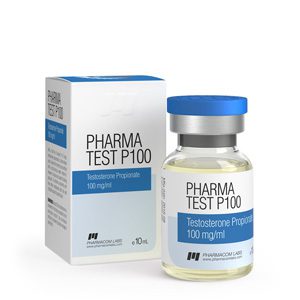Body Pharm IGF 1LR3 100
R300.00
Each unit contains :
1x IGF 1LR3 100 in 3ml multi dosage vial
1x Bacteriostatic water 2ml for reconstitution
1x Product insert with dosage and mixing guidelines.
In stock

BP IGF 1LR3 100 mcg (Insulin-Like Growth Factor 1 Long R3), available in a 100mcg formulation, is a synthetic peptide with potential applications in muscle growth, tissue repair, and overall health.
Product requires reconstitution see package insert for further details.
Below, we delve into the advantages, potential side effects, detailed dosage instructions, and half-life associated with IGF-1LR3.
Benefits of IGF-1LR3 (100mcg):
- Muscle Growth: IGF-1LR3 is known for its ability to stimulate muscle growth and hypertrophy. It promotes the proliferation of muscle cells and enhances protein synthesis, potentially leading to significant gains in muscle mass.
- Tissue Repair: This peptide has been studied for its potential role in tissue repair and regeneration, which can be beneficial for athletes and individuals recovering from injuries.
- Anti-Aging Properties: IGF-1LR3 has potential anti-aging effects, including improvements in skin elasticity and reduced wrinkles.
- Neuroprotection: Some research suggests that IGF-1LR3 may have neuroprotective properties, potentially aiding in cognitive function and neuronal health.
Dosage Instructions:
Dosage instructions for IGF-1LR3 (100mcg) can vary based on individual goals and healthcare provider recommendations. Typically, people administer it through subcutaneous injections. Here are general guidelines:
- Dosage: Common dosages range from 20 to 100mcg per day, divided into multiple injections.
- Injection Frequency: Typically, a user administers injections once or twice a day. Some users prefer to administer injections before or after workouts.
- Duration of Use: Cycles of IGF-1LR3 use can vary but are often several weeks to months in duration. Prolonged use may require periodic breaks.
It is imperative to consult with a qualified healthcare provider to determine the appropriate dosage and injection schedule tailored to individual health needs and goals.
Side Effects:
IGF-1LR3, generally considered safe when used responsibly and under medical supervision. However, as with any substance, it may have potential side effects, though these are typically mild and infrequent. Potential side effects may include:
- Hypoglycemia: IGF-1LR3 can lower blood sugar levels, potentially leading to symptoms of hypoglycemia, such as dizziness, weakness, and confusion. These effects can be managed through dietary choices and careful monitoring.
- Injection Site Reactions: Mild irritation, redness, or swelling at the injection site can occur.
- Overgrowth: Excessive use of IGF-1LR3 may lead to overgrowth of tissues, including muscles and organs. This risk underscores the importance of responsible dosing and medical supervision.
It’s vital to closely monitor for side effects and report any unusual or severe reactions to a healthcare provider.
Half-Life:
IGF-1LR3 has a significantly extended half-life compared to natural IGF-1, estimated to be approximately 20 to 30 hours. This prolonged half-life allows for less frequent injections while maintaining the peptide’s effects.
In summary, IGF-1LR3 (100mcg) is a synthetic peptide with potential benefits in muscle growth, tissue repair, anti-aging, and neuroprotection. It is generally considered safe when used responsibly and under medical supervision. Precise dosage instructions and consultation with a healthcare provider are essential for individuals considering IGF-1LR3 as part of their regimen.
| Brand | Body Pharm |
|---|




